Nov
26
2013
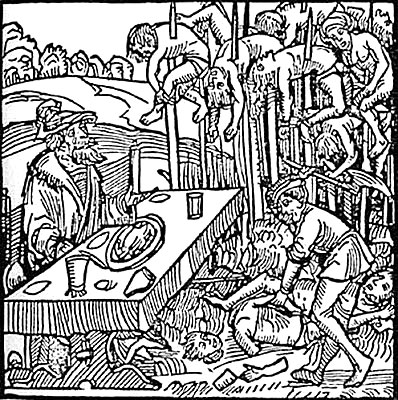
or Nailed to the Mast
Rachel Held Evans is a writer who likes the challenge of “asking tough questions about Christianity in the context of the Bible Belt” while consulting the howling void of modern culture for the answers. That is indeed a challenge. She takes Christians to task for referring to the de-Christianizing of Christmas as “persecution”, offering a helpful chart.
Continue reading
Comments Off | tags: AD70, Christmas, Doug Wilson, Esther, Mordecai, Paul, Persecution | posted in Apologetics, Christian Life, Ethics, Quotes
Nov
2
2013
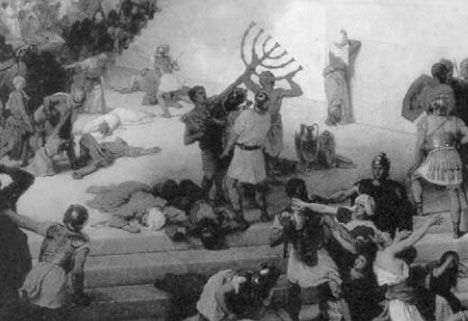
Jesus answered them, “Destroy this temple, and in three days I will raise it up.” (John 2:19)
Every one of God’s houses throughout Bible history has a “former days” and a “latter days.” Each goes through a process of death and resurrection, a “purification by fire.” Following the Bible Matrix, the central “slaying” of every row has a Day 4 symbol, something related to “the governing lights,” the all-seeing eyes of heaven.
Continue reading
Comments Off | tags: AD70, Covenant Theology, David, Ezekiel's Temple, Solomon, Tabernacle, Tabernacle of David, Temple | posted in Bible Matrix, Biblical Theology, The Last Days
Nov
1
2013
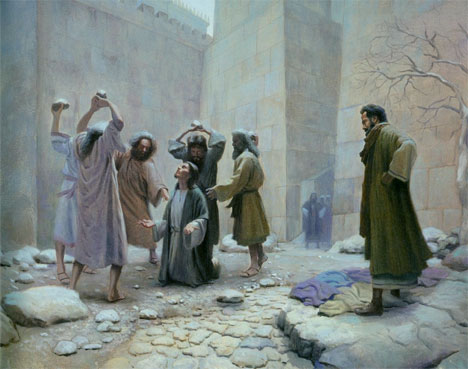
A Debtor to the Law
“Any commentary that misses the fact that the first century isn’t about Jew versus Gentile, but about the Noahic nations of the old world versus the birth of the Christian nations of the new, is way off the mark.”
We continue with the Deuteronomy section of Galatians, which has seven cycles. Paul moves from a Division/Passover motif to an Ascension/Firstfruits motif. That is, Paul gets all Levitical. It’s all about sex and death.
Continue reading
Comments Off | tags: Acts, AD70, Circumcision, Firstfruits, Galatians, Literary Structure, Stephen | posted in Bible Matrix, Biblical Theology, The Last Days
Oct
14
2013
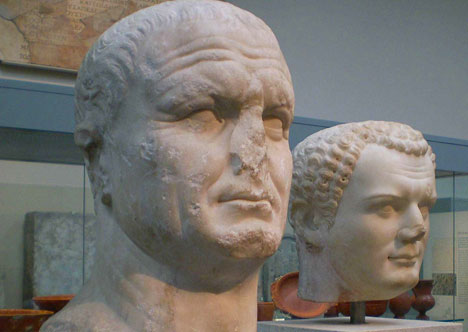
Busts of Vespasian and Titus in the British Museum
or The Coming of the Father and the Son
The chief priests answered,
“We have no king but Caesar.”
So he delivered him over to them to be crucified.
(John 19:15-16)
Is there any significance in the fact that apostate Jerusalem was destroyed by two generals, a father and a son, founders of a new Roman dynasty?
Continue reading
Comments Off | tags: AD70, Covenant Theology, Daniel, James Jordan, Revelation | posted in Bible Matrix, Biblical Theology, Quotes, The Last Days, The Restoration Era
Oct
12
2013
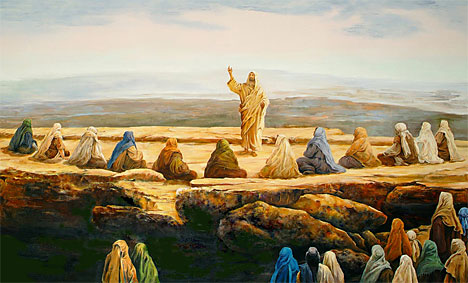
And he opened his mouth and taught them, saying: “Blessed… Blessed…”
(Matthew 5:2-11)
Part 1 is here.
From the mouth of God, (Initiation)
Adam received a natural breath (Delegation)
that he might tend to natural things. (Presentation – priesthood)
He then received spiritual words (the Law). (Purification – kinghood)
He was to repeat these spiritual words (Transformation – prophethood)
that he might receive spiritual (ethical) breath (Vindication)
and become himself the source of spiritual words. (Representation)
Continue reading
Comments Off | tags: Abraham, AD70, Baptism, Covenant Creationism, Covenant Theology, Gensis, Literary Structure, Noah, Sermon on the Mount, Tabernacle of David | posted in Against Hyperpreterism, Bible Matrix, Biblical Theology, Ethics
Oct
9
2013
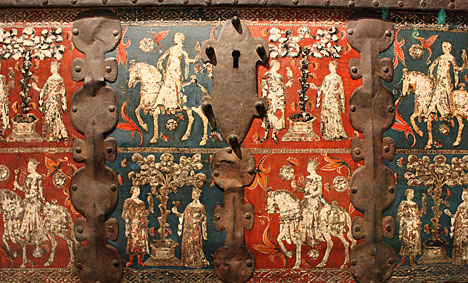
or Marriage is a Glory Box, a Hope Chest
In 1 Peter 3:7, the apostle writes:
Likewise, ye husbands, dwell with them according to knowledge, giving honour unto the wife, as unto the weaker vessel, and as being heirs together of the grace of life; that your prayers be not hindered.
The phrase “according to knowledge” (gnosis) is rendered “in an understanding way” in the NKJV and ESV. But is the exhortation for the husband to understand his wife, or to understand the source of his authority as her husband?
Continue reading
Comments Off | tags: AD70, Evolution, Genesis, Marriage, Totus Christus | posted in Bible Matrix, Biblical Theology, Creation, Q&A, The Last Days
Oct
1
2013
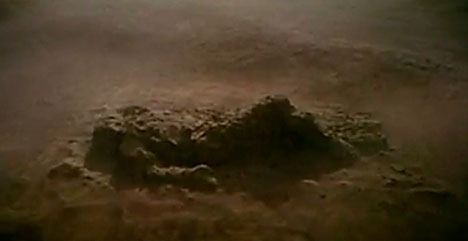
There are heavenly bodies and earthly bodies,
but the glory of the heavenly is of one kind,
and the glory of the earthly is of another.
(1 Corinthians 15:40)
Did Adam receive the Spirit of God? If he did receive the Spirit, was the Spirit taken away when he sinned?
This post has been slain and resurrected for inclusion in my 2015 book of essays, Inquietude.
Continue reading
Comments Off | tags: AD70, Baptism, Covenant Theology, Feasts, Genesis, Tabernacle, Tabernacle of David | posted in Against Hyperpreterism, Bible Matrix, Biblical Theology, Creation
Sep
1
2013
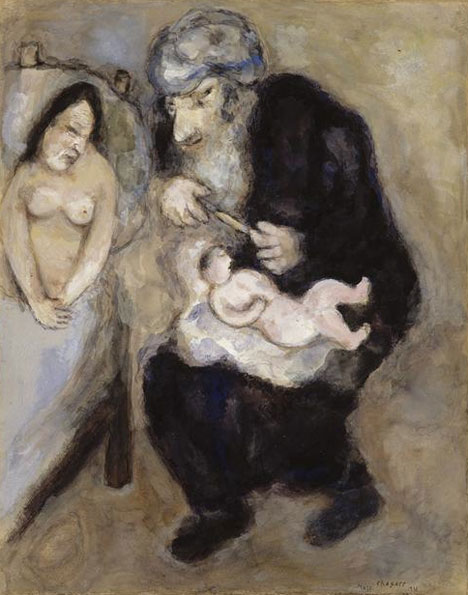
“Leithart’s real problem is that one can tell the difference between a circumcised boy and an uncircumcised one, but a sprinkled baby looks no different to an unsprinkled one.”
Chapter 1 continued
See the Baptism links page for all articles in this series.
Sacraments Are Not Signs, Means Of Grace, Or Symbols
In the next section, Dr Leithart deals with three errors:
1) The tendency to treat signs rationalistically, as nothing more than a means of communicating ideas from one mind to another mind; and,
2) Talking about sacraments as “means” tend to mechanize them, turning the sacraments into machines that deliver grace rather than moments of personal encounter with the living God.
3) Symbolic exchanges (such as language) are not the “real relationship,” which is invisible and could occur just as well without them.
Continue reading
2 comments | tags: Abraham, AD70, Baptism, Circumcision, Pentecost, Peter Leithart, Reformation | posted in Biblical Theology, The Last Days
Aug
26
2013
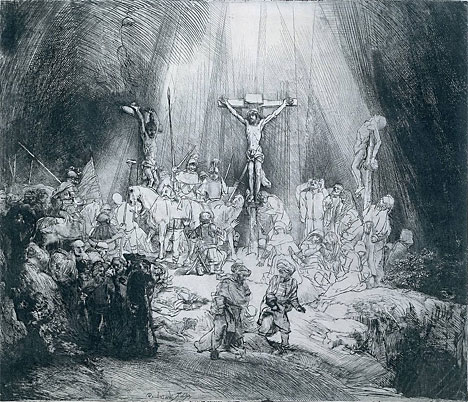
“Then I saw heaven opened, and behold, a white horse! The one sitting on it is called Faithful and True, and in righteousness he judges and makes war… From his mouth comes a sharp sword with which to strike down the nations, and he will rule them with a rod of iron.” (Revelation 19:11-15)
The Bible is big on fruit. The first “Covenant Ethic” was a prohibition on fruit from a particular tree. The transgression of Adam resulted in curses upon the fruit of the Land and the fruit of the womb. The book which describes the end of the Old Covenant, the Revelation, shows the dragon attempting to eat the son of Adam, the fruit of the womb, and then to devour the fruit of the Land, the apostolic “firstfruits” Church. [1] But where is the forbidden tree?
Continue reading
Comments Off | tags: AD70, Communion, Firstfruits, Lampstand, Revelation, Tabernacle, Temple | posted in Bible Matrix, Biblical Theology, The Last Days
Aug
22
2013

What does “Under the Sun” mean in Ecclesiastes?
Genesis 1 tells us that the purpose of the sun, moon and stars is to act as kingly governors of the physical realm. They were created at the centre of the Creation Week (Day 4), before Man, yet Man was not to bow down to them.
And beware lest you raise your eyes to heaven, and when you see the sun and the moon and the stars, all the host of heaven, you be drawn away and bow down to them and serve them, things that the Lord your God has allotted to all the peoples under the whole heaven. (Deuteronomy 4:19)
The reason for this is that although Genesis 1 presents Man as part of the physical order, Genesis 2 moves him beyond this to a social order. When Adam perceives that he is without a mate, he is “bowed down,” physically humbled, that Woman might be constructed. Adam’s order would not be like that of the animals. His rule from its very beginning would be “sacrificial.” Men would not bow to the stars (or to idols) but to each other, because all men are images, reflections, of God. Adam was to subdue the physical order and bring it into submission, and yet submit to other men. The sinful reverse of this is the worship of the physical order (which is yet inherent in the scientism of our own age) and the tyrannical subjugation of our fellow men, which is exactly what happened in Genesis 3. Physical, Social, Ethical.
Continue reading
Comments Off | tags: AD70, Covenant Theology, Lampstand, Revelation, Solomon, Tabernacle | posted in Bible Matrix, Biblical Theology, Q&A, The Last Days



































